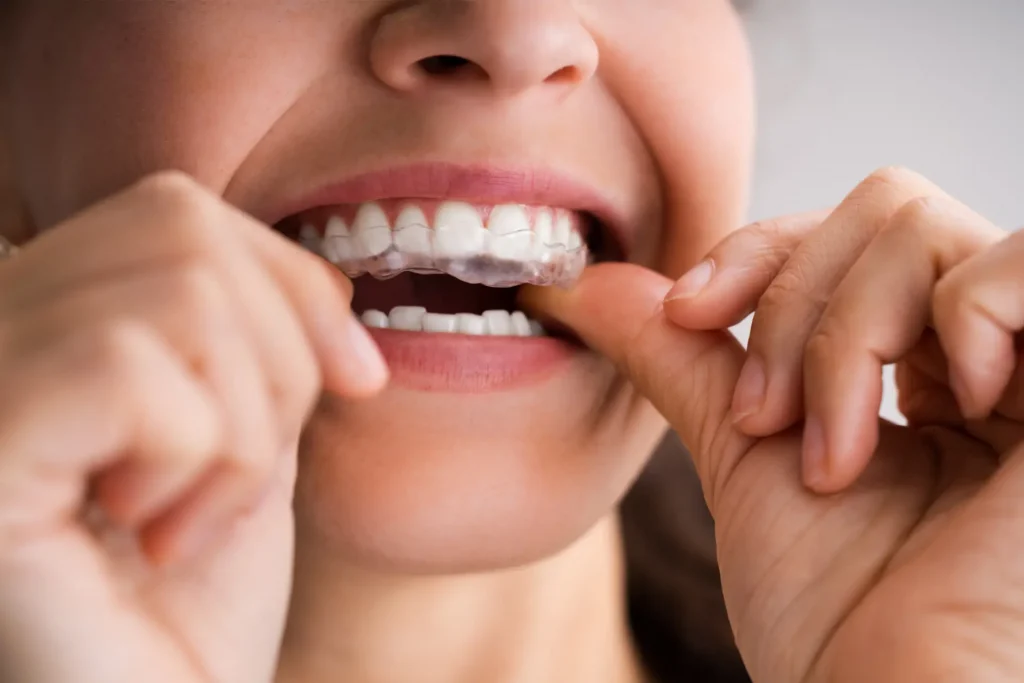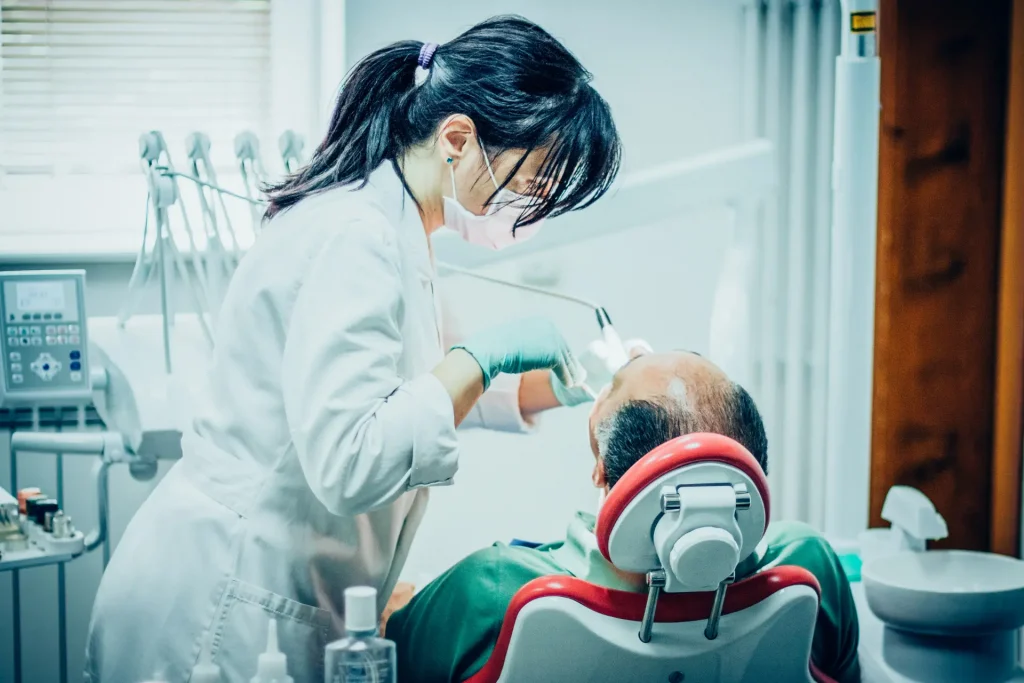
Depending on the country, open bite affects between 1.5% and 11% of the population, making it a relatively common form of malocclusion. When a person has an open bite, their upper and lower teeth do not touch each other when the mouth is closed – the bite remains ‘open’ either at the back or the front.
This article will explain everything you need to know about open bites: what they are, what causes them, and how they can be fixed.
Open bite occurs when the teeth don’t come together correctly – either the back teeth or the front teeth fail to connect when the mouth is closed. This creates a visual gap between the top and bottom jaws, and this ‘openness’ is how the condition gets its name.
There are two kinds of open bite, anterior and posterior:
The most obvious sign of open bite is the visible gap between either the front or back teeth. However, there are other symptoms that may indicate open bite or another kind of malocclusion, such as:
Open bite is normally a result of either dental or skeletal issues, but the condition can be caused by both in some cases.
Some of the most common causes of open bite include:
Like many other dental conditions, open bite can be passed down from generation to generation. This is what is known as a skeletal cause, where the issue originates in bone growth, rather than environmental factors.
Being born with extra teeth can also lead to open bite.
Certain habits can also impact the growth and direction of the teeth, resulting in open bite. These habits include things like:
Open bite can have a whole host of other causes, such as:
Having an open bite is not only damaging to a person’s self-esteem, but it can result in a whole host of other problems, such as:
If the open bite is a result of there not being enough space in the mouth for the teeth, then the teeth are likely to be crowded and overlapped. This makes it almost impossible to brush or floss the teeth properly, leading to a build-up of plaque and bacteria over time. This can result in a painful infection known as periodontal disease – or gum disease – which infects the soft tissues around the teeth.
If gum disease is left untreated, it can result in tooth loss, and the infection can also seep into the bloodstream, damaging the blood vessels over time. Research has shown that this can put a person at higher risk of serious health issues such as heart disease and stroke.
When the upper and lower set of teeth do not fit properly together, such as with open bite, the person’s jaw can be subjected to stress. This extra strain on the temporomandibular joint can result in TMJ disorder, causing severe headaches, jaw clicking and jaw pain.
As open bite means that only the front or back teeth make contact, it can prevent a person from chewing properly or biting off pieces of food. This can lead to cracking, chipping and premature erosion of the teeth, increasing the need for crowns or dental implants over time.
Open bite can severely interfere with a person’s speech and pronunciation. People with open bite most commonly have trouble producing alveolar – /s/ – sounds. This can result in social anxiety, and may impact a person’s ability to excel in their professional life.
As open bites are fairly common, dentists are well used to treating them, and most kinds of braces can fix the problem. Braces will pull the teeth back if they are tilted forward, and place gentle pressure on the teeth over time until they are aligned.
There are a number of options you can choose from when it comes to braces, including ceramic braces, self-ligating braces, and traditional metal braces.

Clear aligners can treat most cases of open bite, working to move the teeth in the same way as braces. Clear aligners are an excellent option for those who are conscious about their appearance, or those who want to fix their teeth without the bulky metal feel of braces.

It’s worth noting that braces alone may not be enough to fix an open bite, and that surgery may be required in severe cases. Treating an open bite in early childhood reduces the chances of the patient needing surgery, but it still may be required in very complex cases. Your dentist or orthodontist will be able to advise if you need surgery.
If you suspect you have an open bite or other form of malocclusion, it’s important to get it checked out by an expert. Catching and treating dental problems early on can greatly reduce your chances of developing health complications as a result of the issue. Why not book an appointment with one of our specialist dentists or orthodontists?